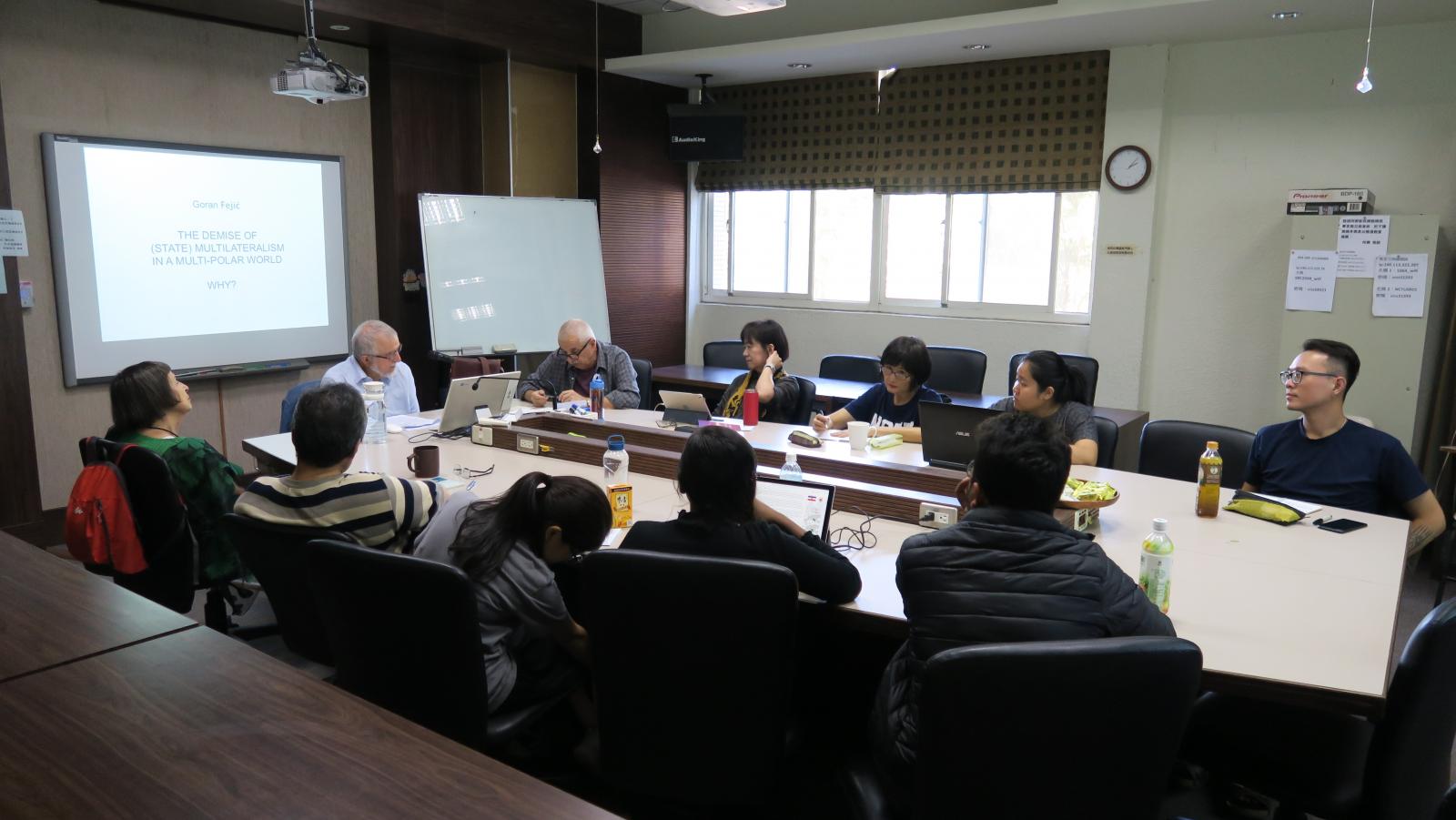

Reporting Goran Fejic’s Lecture “The Demise of (State) Multilateralism in the Multipolar World; Why”
2019-12-07
Topic: The Demise of (State) Multilateralism in the Multipolar World; Why
Speaker: Goran Fejic
Date: 27 November 2019
Goran Fejic is a former Yugoslavia diplomat and a former field coordinator of the United Nations (UN). He believes that multilateralism is in danger at our time when it is mostly urgently needed. In his lecture “The Demise of (State) Multilateralism in the Multipolar World; Why” at the National Chiao Tung University, Fejic reflects on the evolution of multilateralism since the end of World War II. He also offers his view on where the hope lies.
Tracing the development of the UN, Fejic suggests that the UN is not merely a sum of its member states. UN is able to take some initiatives guided by its charter. After the World War II, when the UN was founded, the moral outcry of “never again” informed the draft of the UN Charter. However, the idealism was also compromised by realism, most notably the formation of the Security Council and the veto power of its permanent members. Nevertheless, Fejic suggests, such mix of idealism and realism still solved many problems even the world was divided into blocs in the Cold War.
The Cold War coincided with the independence of African and Asian nation-states. Fejic argues, numbers began to matter in the UN. Although the world was divided in blocs and some new members of the UN acted as proxies of the major powers, the one-state-one-vote system guaranteed the influence of the emergent nation-states in the UN, regardless their economic power. In short, despite the big blocs’ zero-sum games dominate the world, there were powerful emergent undercurrent forces to use the UN to promote a more just and balance international relations and legislations. Fejic argues, the multilateral dynamics created in this period have continued and sustained for many years in the Global South.
Fejic suggests, the rise of Thatcher-Reaganism in the leading Western democracies also marked a downgrade of the UN. The desire of deregulation and emphasis of market forces, rather than international communities, began to dictate. To push their neoliberal agenda, they began to promote a discursive degrade of the UN as a “useless” organization which wasted money. After the end of the Cold War, Fejic argues, the new hegemonic power wanted to make others believe that there would be only one way to bring peace, i.e. through market forces and private ownership. The so-called “Washington Consensus” have changed the game book from one-country-one-vote multilateralism to favouring the rich few.
When corporate interests is prioritized, the term “globalization” has also been given a bad image. The unstoppable neoliberal globalization has further reshuffled economies in more uneven ways, and brought unsustainable economic models. However, Fejic argues, the current form of seeking shelter from “globalization” often choose the wrong targets. Instead of targeting the super-rich, it was often those who call for openness and multilateralism beyond the nation border were targeted. Fejic suggests, the rising populist movements across many parts of the world is anything but “anti-establishment” or “anti-system”. Rather, they rely on the politics of fear and the cliché “common sense” to gain position in the establishment.
Having said that, by the end of his lecture, Fejic also gave some hopes to the audience. Accordingly, although the state-multilateralism is not in a good shape, and nation-states are pushing unilateral policies, hopes lie on transnationalism where people come together to solve international problems and global crisis across the border without the mediation of the states.

近期新聞 Recent News


